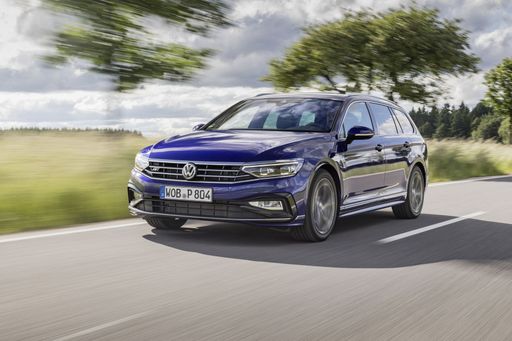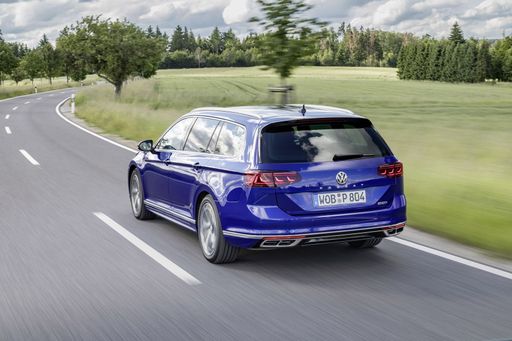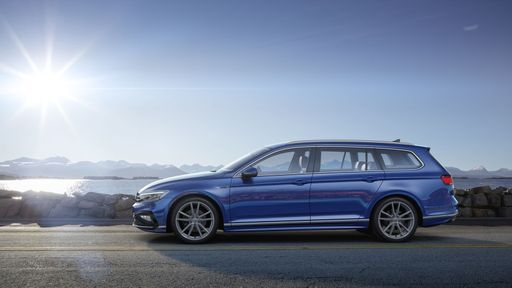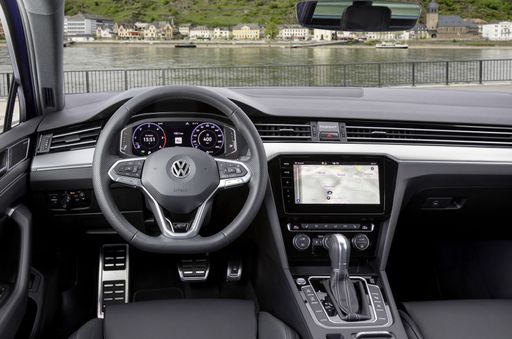Toyota Prius vs VW Passat - Differences and prices compared
Compare performance (223 HP vs 272 HP), boot space and price (39400 £ vs 36500 £ ) at a glance. Find out which car is the better choice for you – Toyota Prius or VW Passat?
Costs and Efficiency:
Price and efficiency are often the first things buyers look at. Here it becomes clear which model has the long-term edge – whether at the pump, the plug, or in purchase price.
VW Passat has a hardly perceptible advantage in terms of price – it starts at 36500 £ , while the Toyota Prius costs 39400 £ . That’s a price difference of around 2958 £.
Fuel consumption also shows a difference: Toyota Prius manages with 0.50 L and is therefore convincingly more efficient than the VW Passat with 1.20 L. The difference is about 0.70 L per 100 km.
As for electric range, the VW Passat performs evident better – achieving up to 135 km, about 49 km more than the Toyota Prius.
Engine and Performance:
Power, torque and acceleration are the classic benchmarks for car enthusiasts – and here, some clear differences start to show.
When it comes to engine power, the VW Passat has a to a small extent edge – offering 272 HP compared to 223 HP. That’s roughly 49 HP more horsepower.
In acceleration from 0 to 100 km/h, the VW Passat is to a small extent quicker – completing the sprint in 5.80 s, while the Toyota Prius takes 6.80 s. That’s about 1 s faster.
In terms of top speed, the VW Passat performs noticeable better – reaching 250 km/h, while the Toyota Prius tops out at 177 km/h. The difference is around 73 km/h.
Space and Everyday Use:
Cabin size, boot volume and payload all play a role in everyday practicality. Here, comfort and flexibility make the difference.
Both vehicles offer seating for 5 people.
In curb weight, VW Passat is minimal lighter – 1573 kg compared to 1620 kg. The difference is around 47 kg.
In terms of boot space, the VW Passat offers convincingly more room – 690 L compared to 284 L. That’s a difference of about 406 L.
When it comes to payload, VW Passat evident takes the win – 577 kg compared to 375 kg. That’s a difference of about 202 kg.
Who wins the race in the data check?
The Toyota Prius holds a very small edge in the objective data comparison.
This result only shows which model scores more points on paper – not which of the two cars feels right for you.
Costs and Consumption
View detailed analysis
Engine and Performance
View detailed analysis
Dimensions and Body
View detailed analysis

Toyota Prius
Toyota Prius
The Prius glides through traffic like a wise commuter's secret weapon, balancing miserly running costs with an unflappable sense of reliability. It's not a thrill seeker, but its roomy cabin, sensible packaging and low-stress driving personality make it a brilliant choice for buyers who value peace of mind over pulse-raising performance.
details



VW Passat
The VW Passat is the grown-up family car that gets the basics absolutely right — roomy, comfortable and built to handle weekday commutes and weekend getaways without fuss. It won't set your pulse racing, but its calm composure and sensible packaging make it boring in the best possible way: a dependable, no‑drama choice for buyers who value practicality over flash.
details



Costs and Consumption |
|
|---|---|
|
Price
39400 - 45800 £
|
Price
36500 - 58500 £
|
|
Consumption L/100km
0.5 - 0.7 L
|
Consumption L/100km
1.2 - 8 L
|
|
Consumption kWh/100km
-
|
Consumption kWh/100km
-
|
|
Electric Range
72 - 86 km
|
Electric Range
124 - 135 km
|
|
Battery Capacity
-
|
Battery Capacity
19.70 kWh
|
|
co2
12 - 17 g/km
|
co2
28 - 181 g/km
|
|
Fuel tank capacity
40 L
|
Fuel tank capacity
45 - 66 L
|
Dimensions and Body |
|
|---|---|
|
Body Type
Hatchback
|
Body Type
Estate
|
|
Seats
5
|
Seats
5
|
|
Doors
5
|
Doors
5
|
|
Curb weight
1620 - 1630 kg
|
Curb weight
1573 - 1858 kg
|
|
Trunk capacity
284 L
|
Trunk capacity
510 - 690 L
|
|
Length
4599 mm
|
Length
4917 mm
|
|
Width
1782 mm
|
Width
1849 mm
|
|
Height
1470 mm
|
Height
1521 mm
|
|
Max trunk capacity
-
|
Max trunk capacity
1770 - 1920 L
|
|
Payload
365 - 375 kg
|
Payload
501 - 577 kg
|
Engine and Performance |
|
|---|---|
|
Engine Type
Plugin Hybrid
|
Engine Type
Petrol, Petrol MHEV, Diesel, Plugin Hybrid
|
|
Transmission
Automatic
|
Transmission
Automatic
|
|
Transmission Detail
CVT
|
Transmission Detail
Dual-Clutch Automatic
|
|
Drive Type
Front-Wheel Drive
|
Drive Type
All-Wheel Drive, Front-Wheel Drive
|
|
Power HP
223 HP
|
Power HP
122 - 272 HP
|
|
Acceleration 0-100km/h
6.80 s
|
Acceleration 0-100km/h
5.8 - 10.7 s
|
|
Max Speed
177 km/h
|
Max Speed
212 - 250 km/h
|
|
Torque
-
|
Torque
250 - 400 Nm
|
|
Number of Cylinders
4
|
Number of Cylinders
4
|
|
Power kW
164 kW
|
Power kW
90 - 200 kW
|
|
Engine capacity
1998 cm3
|
Engine capacity
1498 - 1984 cm3
|
General |
|
|---|---|
|
Model Year
2023
|
Model Year
2024 - 2025
|
|
CO2 Efficiency Class
B
|
CO2 Efficiency Class
G, D, E, B
|
|
Brand
Toyota
|
Brand
VW
|
Is the Toyota Prius offered with different drivetrains?
Available configurations include Front-Wheel Drive.
